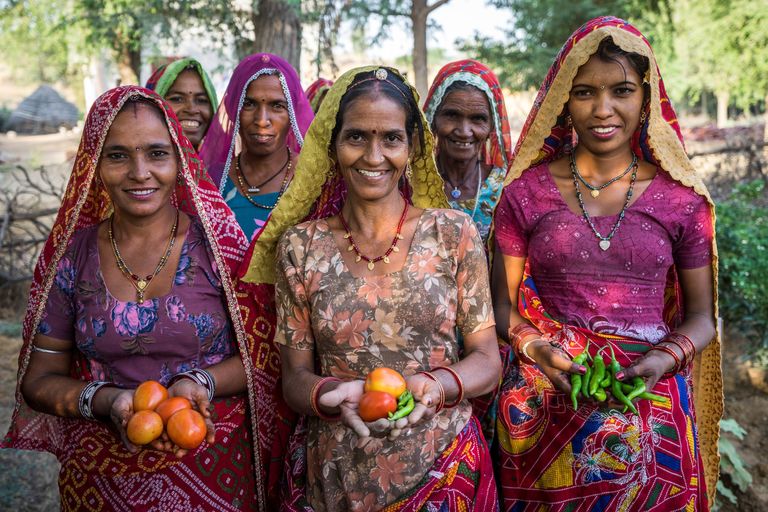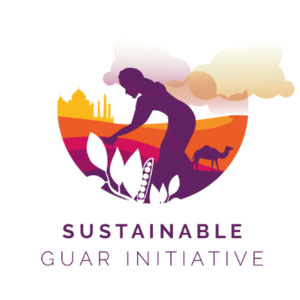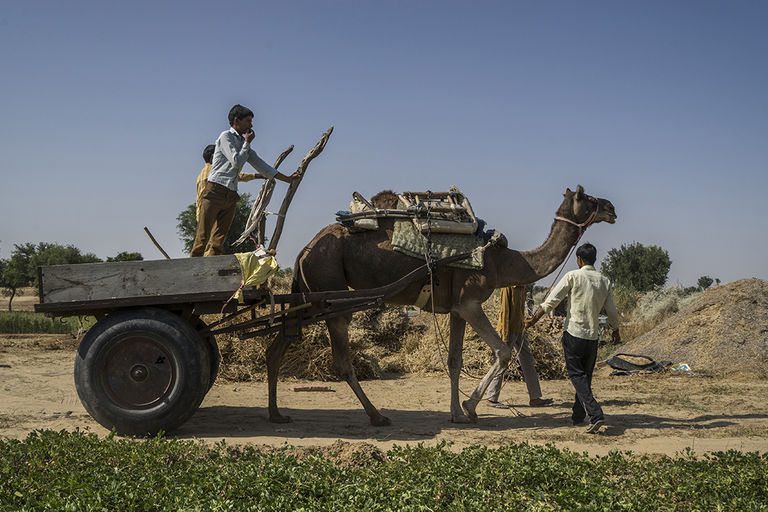Improving sustainability and quality of life for farmer communities in Rajasthan
Guar gum is used as a thickening agent, stabilizer and conditioner in various industries. Made from the guar bean, a legume cultivated in the semi-arid regions of northern India, it’s a renewable resource that helps answer growing customer demand for natural and sustainable ingredients. But climate change is making farming more difficult, and guar, a low-value crop, is not the most attractive to farmers.
To address these challenges, Syensqo (previously Solvay), L’Oréal, Henkel, Procter & Gamble, Hichem and NGO TechnoServe have partnered for the Sustainable Guar Initiative (SGI), an integrated program targeted at developing sustainable guar production within the Bikaner district of Rajasthan, India. This desert area is one of India’s largest producers of guar.
The Syensqo Fund supports the Sustainable Guar Initiative to ensure better revenue for farmers and encourage more sustainable and resilient agricultural practices.
To empower women farmers, the initiative also offers training and education programs, focusing on hygiene, health, nutrition and digital literacy.
Ensuring sustainable income, social integration, access to education and the empowerment of women among vulnerable agricultural populations in rural India.
Key figures*
farmers involved
women
villages
increase in farmer revenue
trees planted
kitchen gardens set up
* key figures since the launch of the Sustainable Guar Initiative in 2015, till end of 2023
Phase 3: Enhancing impact and sustainability
Since its launch in 2015, the Sustainable Guar Initiative has made significant strides in promoting sustainable farming techniques, empowering women and fostering community development. After almost a decade, its ambition has not diminished: the project is now entering phase 3, which focuses on agronomy, social impact, market and environment
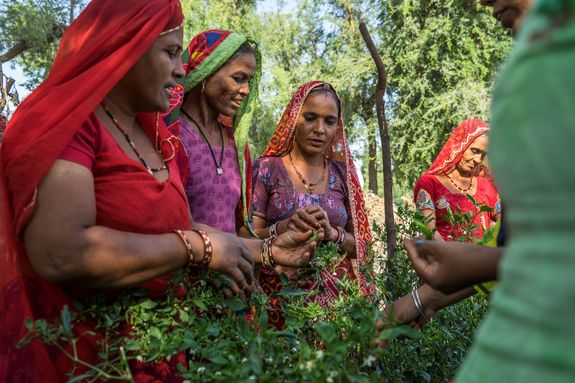
Agronomy
Upskill men and women farmers through trainings and demonstrations to encourage the adoption of Good Agricultural Practices (GAP) and Climate Smart Agriculture (CSA).
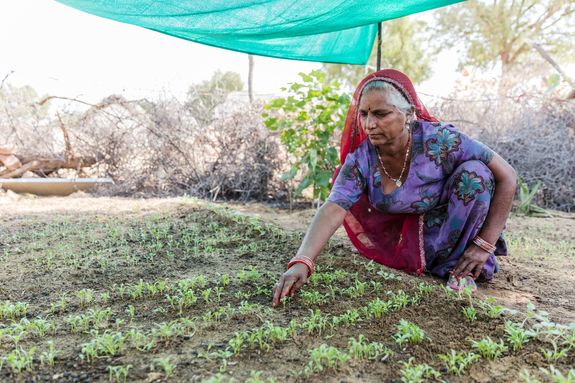
Social
Train women farmers to create kitchen gardens that can fulfill the nutritional needs of the family, increase awareness regarding hygiene practices, and fight absenteeism from school for children.
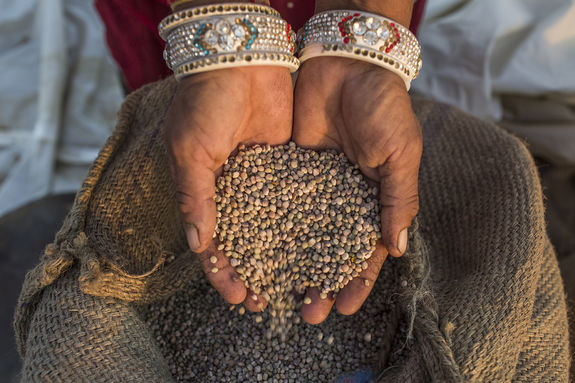
Market
Strengthen the Farmer Producer Organization, enabling farmers to conduct business independently, and raise awareness regarding access to financing and traceability.
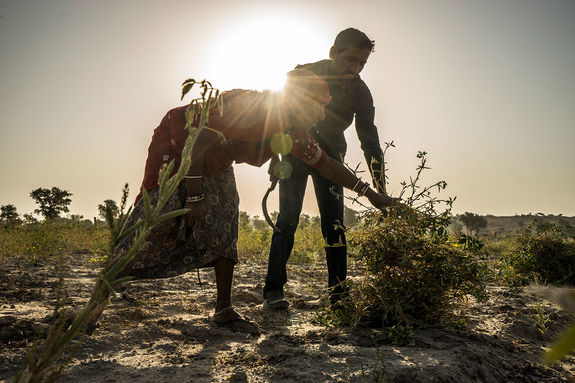
Natural resources management
Support farmers in climate change mitigation, establishing new agroforestry plots and a management committee to ensure plant survival and monitor water usage.
Discover more initiatives protecting the planet

